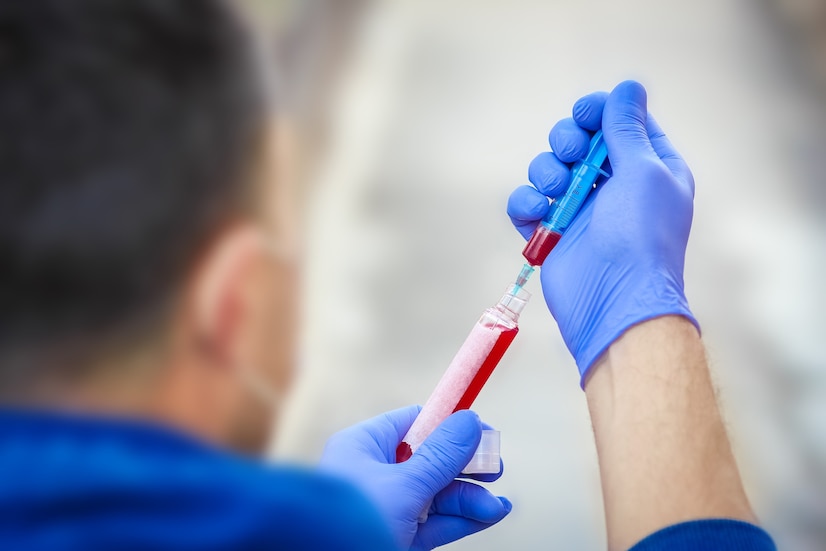
Phlebotomy, the practice of drawing blood for diagnostic or therapeutic purposes, has become a critical component of healthcare services worldwide. In the UK, the demand for skilled phlebotomists has surged, reflecting the broader trends in healthcare that prioritize diagnostic services and personalized medicine. This post explores the landscape of phlebotomy training in the UK, its effectiveness, and its impact on healthcare services.
The Growing Demand for Phlebotomists in the UK
The NHS, private hospitals, and clinics across the UK are in constant need of trained phlebotomists. With an aging population and an increase in chronic conditions such as diabetes, the demand for blood tests – and, therefore, phlebotomists – is higher than ever. This growing need has spotlighted the importance of comprehensive training programs that can equip individuals with the necessary skills to perform effectively in this vital role.
The Structure of Phlebotomy Training in the UK
Phlebotomy training in the UK is designed to furnish aspiring phlebotomists with both theoretical knowledge and practical skills. Typically, these training programs cover topics such as anatomy and physiology, infection control, blood collection techniques, patient communication, and data handling. The practical component often involves supervised blood draws, allowing trainees to gain hands-on experience. Build the Competency Phlebotomy Training Birmingham.
There are several pathways to becoming a phlebotomist in the UK, including vocational courses offered by colleges, private training providers, and on-the-job training programs within healthcare institutions. Some programs also include certification exams that, upon passing, officially recognize the individual as a competent phlebotomist.

The Effectiveness of Phlebotomy Training
The success of phlebotomy training programs in the UK can be attributed to several factors. Firstly, the comprehensive curriculum ensures that trainees are well-prepared for the challenges of the role. The inclusion of hands-on training components further enhances learning, enabling trainees to apply theoretical knowledge in real-world settings.
Secondly, the regulatory environment in the UK ensures that phlebotomy training programs meet high standards. Accrediting bodies such as the National Association of Phlebotomists (NAP) and the Institute of Biomedical Science (IBMS) set guidelines and accreditation standards that training providers must adhere to, ensuring the quality and relevance of the educational content.
Impact on Healthcare Services
The effectiveness of phlebotomy training programs has a direct impact on the quality of healthcare services in the UK. Skilled phlebotomists contribute to efficient diagnostic processes, minimizing discomfort and anxiety for patients during blood collection. Furthermore, their expertise supports accurate and timely diagnosis, which is crucial for effective treatment planning.
The success of phlebotomy training also addresses the workforce needs within the healthcare sector, helping to alleviate staffing shortages. By ensuring a steady supply of competent professionals, these programs support the sustainability of high-quality healthcare services.
The Future of Phlebotomy Training
Looking ahead, the role of phlebotomists in the healthcare system is set to become even more significant. Developments in medical technology and an increasing emphasis on personalized medicine will likely result in a greater volume and variety of blood testing. Consequently, there will be an ongoing need for skilled phlebotomists, driving further innovations in training programs to keep pace with evolving healthcare demands.
In addition to technical skills, future training programs may place greater emphasis on interpersonal skills, reflecting the importance of patient-centered care. The ability to communicate effectively, manage patient anxiety, and provide compassionate care will be recognized as key components of the phlebotomist’s role.

Conclusion
The success of phlebotomy training in the UK is a testament to the importance of specialized education in the healthcare sector. By equipping individuals with the skills and knowledge required to perform this essential role, these programs contribute significantly to the effectiveness of healthcare services. As the demand for phlebotomy services continues to grow, the quality of training programs will remain a critical factor in ensuring the delivery of high-quality healthcare.
For those considering a career in phlebotomy, the opportunities are plentiful. With the right training, phlebotomists can play a pivotal role in healthcare, providing invaluable services that support patient care and treatment outcomes.
